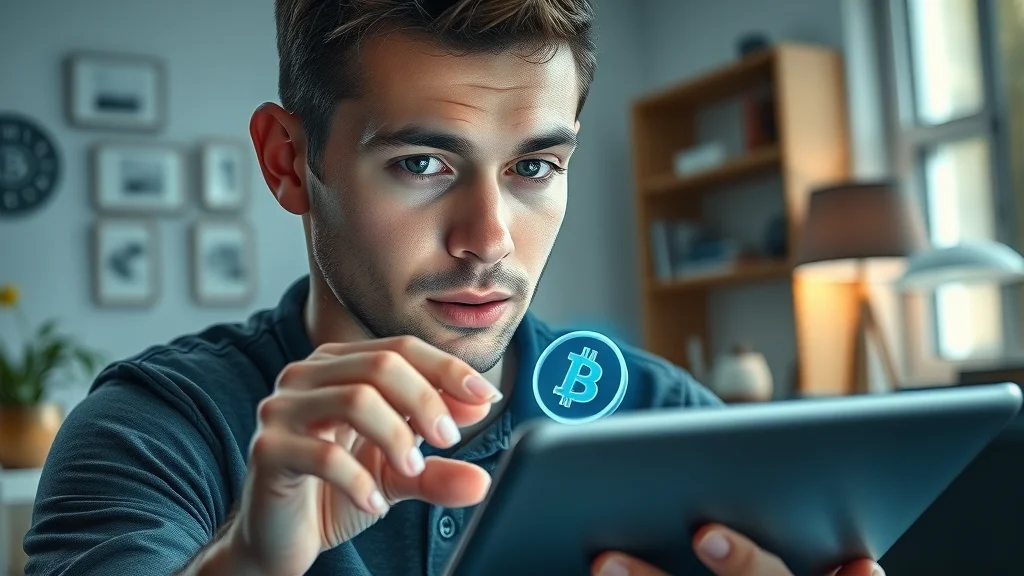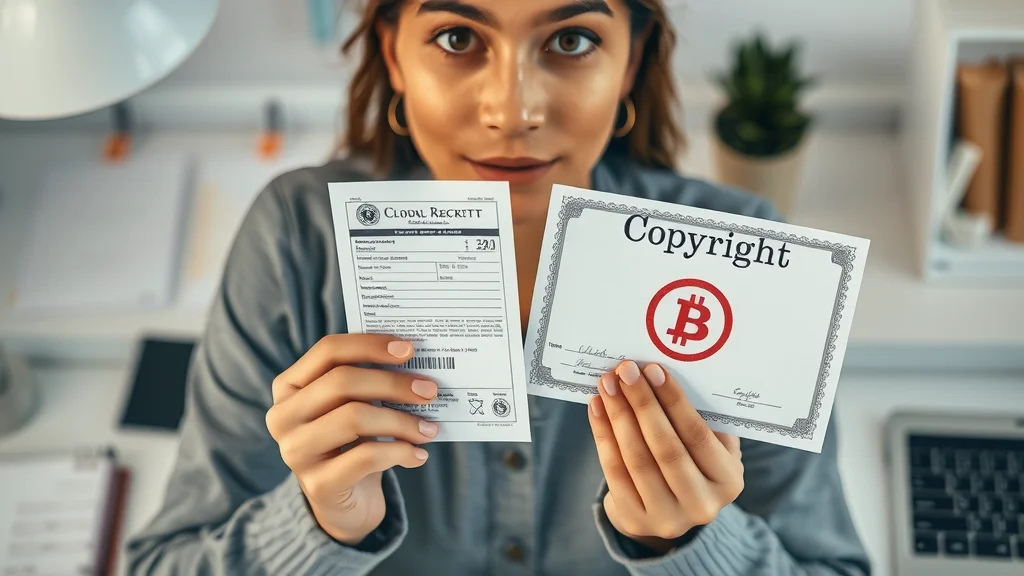Did you know? “93% of NFT buyers mistakenly believe they own full intellectual property rights to their purchase. The truth is more complicated.” While NFTs have created exciting opportunities to own digital assets, there’s a lot of confusion about what rights you really get when you buy one. In this article, we unveil the reality behind NFT ownership, explain how property rights work, and clear up common misconceptions—so you can invest, create, or collect with confidence. Stick around if you want clarity about NFTs (intellectual property), avoiding costly mistakes, and understanding what’s truly yours in the digital age.
Unveiling the Mystery: NFT Ownership and Intellectual Property
- The basics of NFTs (Intellectual Property) and digital ownership
- How intellectual property rights relate to NFTs
- What distinguishes NFT property rights from traditional assets
- Key legal questions and concerns about NFTs (Intellectual Property)
"93% of NFT buyers mistakenly believe they own full intellectual property rights to their purchase. The truth is more complicated."

Let’s bust the myth wide open: Owning an NFT (non-fungible token) doesn’t mean you automatically own the underlying art, song, video, or other creation it represents. You do own a unique digital token on the blockchain, but intellectual property (IP) rights may stay with the original creator. Confusing, right? That’s because the rules for digital content aren’t the same as buying a painting or a collectable in real life. Many NFT buyers are surprised to learn that property rights for NFTs (intellectual property) can be vastly different from traditional assets like physical goods or even digital files with explicit licenses. This guide covers what you need to know—so you avoid misunderstandings, lawsuits, or accidental copyright infringement.
What Is an NFT? Breaking Down NFTs (Intellectual Property) and Their Purpose
An NFT (non-fungible token) is a unique digital certificate stored on the blockchain, proving your ownership of a specific digital asset. The digital file could be artwork, music, video, or even a tweet, but the NFT itself is just a record—like a receipt, not the artwork itself. That’s one big difference from traditional property law. The NFT points to (or sometimes contains) a digital copy of the asset, but the actual intellectual property rights—like the right to copy, display, or profit from the asset—usually remain with the creator of the NFT unless specifically transferred.
This distinction has huge implications for digital ownership. If you’re buying an NFT to use it commercially, make copies, or display it publicly, you need to read the terms. Most NFTs present limited rights, and you may just be getting permission for personal, non-commercial use. As NFTs have gained popularity, questions raised by buyers, artists, and copyright office experts focus on what’s truly transferring in an NFT sale, and whether property rights, intellectual property law, or something entirely different applies.
Intellectual Property and NFTs: Definitions and Concepts
Intellectual property (IP) refers to the legal rights protecting creative works like art, music, inventions, symbols, and trade secrets. When you buy an NFT, you are not automatically buying the IP rights of what’s shown in the digital file. Instead, you’re often getting a type of ownership proof for a digital asset—but not the legal right to exploit the image, sound, design, or code. This mix-up leads to widespread confusion, as intellectual property rights like copyright, trademark, and patent may still belong to someone else, protected by the copyright office or even global treaties.

In the world of NFTs (Intellectual Property), understanding how digital assets are protected, registered, and policed is crucial. Property law for digital assets hasn’t caught up fully. Mark law for trademark owners, and patent laws, each add another layer of complexity. The line between owning a digital asset and owning its intellectual property rights creates gray areas, which lawmakers, creators, and collectors are still debating. You might see a beautiful NFT artwork, but what you own is the token on the blockchain, not necessarily the rights to the digital art, video, or music it displays.
The Reality of NFT Ownership vs. Intellectual Property Rights
When you purchase an NFT, you’re buying a blockchain-based token that serves as a public register notice proving ownership of that specific digital asset. This is why NFTs are called “non-fungible”—each one is unique, tied to a particular digital copy or metadata. But here’s the curveball: in most NFT sales, IP rights—specifically the right to reproduce, modify, or profit from the original artwork—are not included unless explicitly stated by the creator. This surprising gap has led to copyright issues, as many buyers mistakenly believe the NFT grants full control over the art or file.
The difference between NFT ownership and intellectual property rights is critical. Owning an NFT often means being able to display or resell the token within a digital marketplace, but can come with strict limitations on what you can do with the underlying digital file. Traditional property rights are much broader: you can sell, gift, or destroy a physical painting, and the copyright might transfer as well. With NFTs, unless the terms or a register notice specifically transfers copyright or trademark, you could be spending millions for digital bragging rights—but little legal power over the digital content itself.
Distinguishing NFT Property Rights from Intellectual Property Rights
It’s easy to confuse the idea of owning a digital asset with owning the legal rights to that asset. NFT property rights are about blockchain ownership—the record that a certain wallet holds a given token. Intellectual property rights, however, govern how the underlying creation can be used, shared, or monetized. This is why legal experts and trademark owners are focused on educating the public. In essence, owning an NFT is like buying a limited-edition collector’s card—not like owning the rights to print, distribute, or profit from what’s on the card.
| Aspect | NFTs (Intellectual Property) | Traditional Assets |
|---|---|---|
| Ownership Evidence | Blockchain Token | Physical Document |
| IP Rights Conveyed | Often Limited/None | Clearly Defined |
| Transferability | Easy (Digital Marketplace) | Regulated by Law |
| Usage Rights | Varies (Often Display-Only) | Usually Unlimited |
| Resale Rights | Allowed, but with Limitations | Allowed |
This table highlights why IP issues and property rights are a hot topic. With NFTs, these distinctions mean your rights as the owner of the NFT are more limited than you might think. Understanding this difference is essential before you ever participate in the sale of the NFT—to avoid legal headaches or disappointment later.
The Sale of the NFT: What Exactly Is Transferred?
What do you actually get when you buy an NFT? Usually, the sale of the NFT transfers ownership of the NFT token itself, not the rights or copyright to the digital file, music, or design. This means you can prove via blockchain that you own the NFT and potentially resell it to someone else, but unless a special license is included (like Creative Commons or specific usage rights outlined in the contract), you can’t reproduce, edit, or use the digital content commercially.
Creators of NFTs can—and sometimes do—attach explicit property rights to their tokens. For example, some NFT projects grant collectors the right to use images in merchandise, while others restrict all commercial use. However, most NFT transactions are silent on IP rights, leaving buyers with the NFT, but not the underlying creative freedom. This is a key point in property law and why platforms and marketplaces always recommend reading the terms before buying an NFT.
Understanding IP Rights in the Sale of the NFT
Understanding IP rights during an NFT sale is about asking “what exactly am I getting?” Most buyers receive the ability to display, transfer, or resell the NFT—not commercial or copyright rights. This subtlety often gets lost, especially with celebrities or headline projects where people have spent millions and assume they “own the art.” If the NFT seller wants to include wider intellectual property permissions, those should be clearly written into the sale of the NFT smart contract or a separate agreement.
Misunderstandings in this area can lead to disputes or claims of trademark infringement and copyright violations. Buyers need to verify if their NFT comes with a clear license agreement, check for federal register or copyright office filings, and understand how mark law applies. In the absence of explicit permissions, always assume the creator of the NFT retains full intellectual property and your rights are limited to displaying or reselling within allowed terms.
Types of Intellectual Property and How They Relate to NFTs
- Copyright
- Trademark
- Patent
- Trade Secret

Let’s explore the main kinds of intellectual property and how they connect with NFTs. Copyright protects original creative works, like digital art, code, or music, and is most often tied to NFT sales. Trademark guards logos or brand symbols; using a protected emblem in an NFT without permission can lead to mark infringement or lawsuits. Patent covers inventions and unique processes—less common in NFTs, but possible with new blockchain technologies or smart contract applications of NFTs. Trade secrets refer to confidential information that provides a business advantage, though they’re rarely embedded in visible NFT metadata or public tokens.
Most NFT IP questions focus on copyright (does owning the NFT mean I own the art?), but trademark owners are increasingly alert to unlawful uses. The applications of NFT technology are growing, from gaming to fashion, but always check whether your digital asset is linked to an existing intellectual property claim. As NFT markets grow, the distinction between digital ownership and intellectual property law is becoming even more meaningful—and may determine what you’re legally allowed to do with your purchase.

If you want a visual guide, imagine an NFT as a digital token with a unique address stored on the blockchain. The blockchain acts like a digital notary—publicly proving you own a token, and logging every sale or transfer. But this system only tracks the token ownership, not which or if any intellectual property rights come with the NFT. When you resell an NFT, the blockchain updates to show the new owner, but IP rights only transfer if clearly stated in the sale terms. Platforms like StockX LLC and major NFT marketplaces help facilitate these transfers, but buyers and sellers must address IP issues in each deal.
Debunking NFT Myths: Common Misconceptions About NFTs (Intellectual Property)
"NFTs (Intellectual Property) are best thought of as a receipt — not a copyright deed."

One persistent myth is that buying an NFT grants full IP rights, making you the legal owner of the art, song, or video. In almost every case, this is false—the NFT is better viewed as a digital receipt, while the copyright or trademark stays with the creator unless specifically transferred. This misunderstanding leads to legal risk, especially for buyers hoping to use NFTs in ways not permitted by the original license.
Another common confusion: “I can use my NFT however I want.” Not true. Most NFTs present usage that is limited to display in your digital wallet, resale within a marketplace, or social sharing (sometimes with restrictions). Unauthorized commercial use can trigger mark infringement or even litigation from trademark or copyright holders. Before spending millions, always read what is (and isn’t) allowed in the NFT’s terms of sale. If in doubt, consult with an intellectual property professional—otherwise, you might buy bragging rights, but not the legal rights to your digital treasure.
Legal Uncertainties: NFTs, Copyright Law, and Jurisdiction
The intersection of NFTs and intellectual property law is rapidly evolving and filled with legal uncertainties. As NFTs cross borders, questions raised about which country’s laws apply become more pressing. For instance, a work uploaded to an NFT marketplace in Europe may infringe copyright held by someone in the U.S., or vice versa, making jurisdiction a thorny issue for both enforcement and ownership. The copyright office, federal register notice, and global treaties are all working to define standards, but for now, legal outcomes vary widely between courts and regions.
Public roundtables and legal experts are studying these challenges. Most investors and fans of NFTs must accept there are unresolved legal risks—especially when it comes to property law, digital content, or international trademark infringement. Until clearer guidelines are set, buying, creating, or reselling NFTs should be done with extra caution and legal advice, especially for high-value or celebrity-linked projects.
Is NFT Legal or Illegal? Jurisdictional Challenges around NFTs (Intellectual Property)
Is an NFT legal? The answer is: it depends. Buying, selling, or owning NFTs (intellectual property) is legal in most countries, but legal issues arise when an NFT violates copyright or trademark rights, spreads someone’s confidential data, or is sold without proper disclosure of its IP status. Questions raised by trademark owners and copyright office officials lead to ongoing court battles and evolving laws.
Jurisdictional ambiguities still dominate. For example, courts in different places disagree about whether property rights and IP issues connected to NFTs are governed by the laws in the buyer’s country, the creator’s country, or where the marketplace is located. Ongoing public roundtable discussions continue to collect public comments and shape future regulation. Until standardized laws are firmly in place, it’s best to assume all usual intellectual property rights apply, unless the NFT clearly states otherwise in its contract or registry.
Future of NFTs (Intellectual Property): What Happened to NFTs in 2025 and Beyond?
The last few years have shown us that NFTs are here to stay, but the legal landscape is still catching up. In 2025 and beyond, more countries are clarifying how property rights, copyright, and digital ownership apply to NFTs. New laws, more transparent licensing, and improved consumer education are shaping a safer investment environment for buyers and creators alike. While NFT markets are volatile, applications of NFT technology are expanding in music, gaming, fashion, and even real estate. Expect more legal clarity, but also more scrutiny—especially for high-profile sales and projects that cross international borders.
Legal debates will continue, focusing on how to enforce intellectual property rights globally, how to resolve cross-border disputes, and how to prevent NFT scams or abuse. Looking forward, successful NFT collectors and creators will be those who understand legal basics and track changing rules. Staying proactive, reading sale terms, and participating in public roundtable and public comments is key for anyone wanting to thrive in the digital asset space.
NFT Trends: Lessons Learned and Continuing Legal Debates
- Buying an NFT rarely grants comprehensive intellectual property rights
- Understand the difference between owning an NFT and owning the IP itself
- NFT legality is still evolving and varies by jurisdiction
- Stay informed as the legal landscape changes

FAQs: NFTs (Intellectual Property) and Your Rights
Is NFT Intellectual Property?
No, an NFT by itself is not intellectual property. An NFT is a digital token recorded on a blockchain that serves as a proof of ownership for a specific item, usually a digital file. The actual intellectual property rights (like copyright or trademark) typically remain with the creator of the NFT unless specific legal terms transfer those rights to the buyer.
What Happened to NFTs in 2025?
By 2025, NFTs became better understood and more legally structured. Regulations were developed to clarify property rights and IP issues, making it easier for buyers and creators to know exactly what was being transferred in a sale. While market hype cooled, NFT technology found stable use in gaming, art, and even recordkeeping. Legal standards continue to evolve worldwide.
What Are the 4 Types of Intellectual Property?
The four main types of intellectual property are: (1) Copyright, which protects original creative works; (2) Trademark, which safeguards brand names, symbols, and logos; (3) Patent, which protects inventions and new processes; and (4) Trade Secret, which secures confidential business information. Each interacts differently with the sale, creation, or use of NFTs.
Is NFT Legal or Illegal?
NFTs themselves are legal. However, legal issues can arise if NFTs are used to infringe on existing intellectual property rights, share others’ confidential data, or mislead buyers about what’s included. With evolving regulations, it is important to check the legal status in your region and always review the IP agreement when buying an NFT.
We'd love to hear what you think about this? Please add your comments below...
Your feedback helps grow our collective understanding of NFTs and digital property rights. Do you have experiences with buying, selling, or creating NFTs (intellectual property)? Any thoughts on how the law should evolve? We welcome your public comments below!
Conclusion
Takeaway: NFT ownership rarely includes full intellectual property rights. Always read the terms, know what you’re buying, and keep learning as the legal landscape grows!
Sources
- Ethereum – https://ethereum.org/en/nft/
- U.S. Copyright Office – https://www.copyright.gov/
- WIPO – https://www.wipo.int/about-ip/en/
- Lexology – https://www.lexology.com/library/detail.aspx?g=62d7b7b5-c2a7-4c01-91d1-f4a87783b775
- Forbes – https://www.forbes.com/sites/legalentertainment/2022/09/28/nft-law-intellectual-property-rights/
Understanding the intricacies of NFT ownership and intellectual property rights is crucial for anyone involved in the digital asset space. The article “NFT Intellectual Property: The Game is Afoot” from Hedera provides a comprehensive overview of how intellectual property rights interact with NFTs, emphasizing that ownership of an NFT doesn’t automatically confer rights to the underlying content. (hedera.com) Additionally, the “Joint study on intellectual property rights and non-fungible tokens” by the United States Patent and Trademark Office (USPTO) offers an in-depth analysis of the legal considerations surrounding NFTs and intellectual property, highlighting ongoing efforts to clarify these complex issues. (uspto.gov) For a foundational understanding, the Wikipedia article on Non-fungible tokens explains the technical aspects and common misconceptions about NFT ownership and associated rights. (en.wikipedia.org) If you’re serious about navigating the NFT landscape, these resources will provide you with the essential knowledge to make informed decisions.
 Add Row
Add Row  Add
Add 




Write A Comment